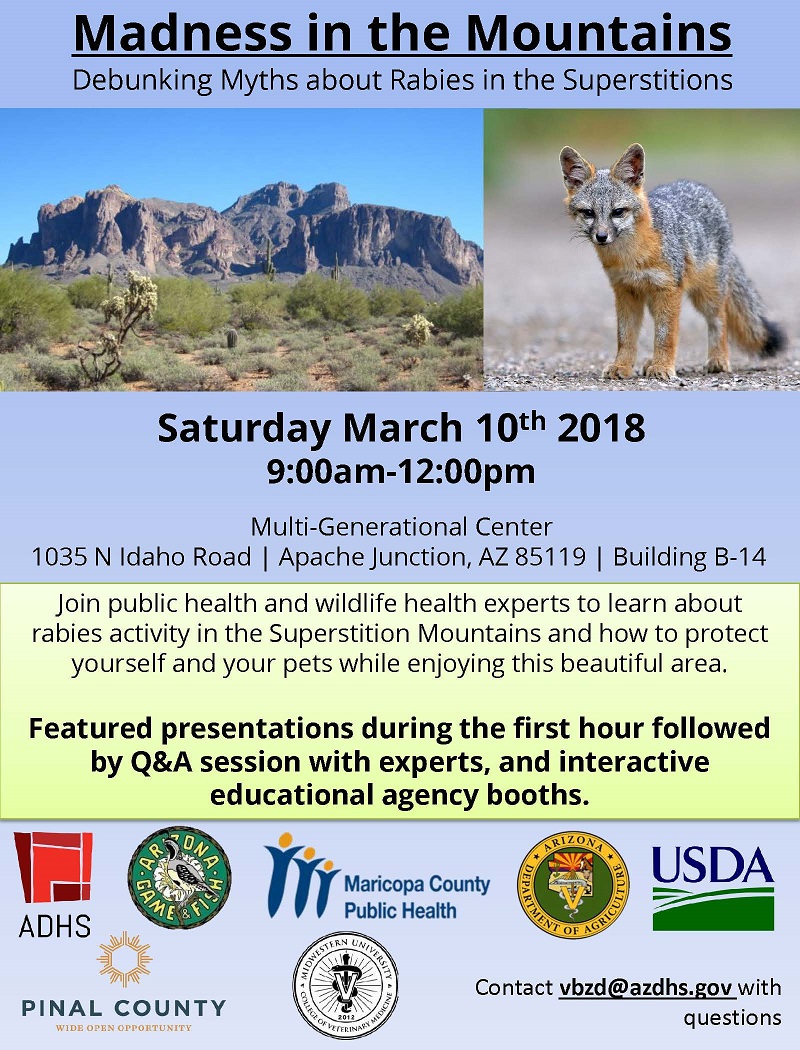Last Friday, we convened our Council on Infectious Disease Preparedness and Response to ensure that partners outside of the public health community have input into Zika preparedness activities. The meeting kicked off with a situational overview of Zika virus at the global, national, and state level and transitioned into a discussion of Arizona-specific response activities.
To maintain and enhance Zika preparedness in Arizona, our staff monitor the national and international Zika situation and keep state, local and healthcare partners informed of the most recent and relevant developments. We continue to support county health departments in conducting Zika risk assessments of returning travelers in order to coordinate Zika testing with healthcare providers and our state and CDC laboratories. Our Arizona Arboviral Workgroup meets on a monthly basis to coordinate mosquito surveillance and control across the state. Our Arizona State Public Health Laboratory now maintains capacity to conduct Zika virus testing.
Last week, we also published our Arizona Arboviral Handbook for Chikungunya, Dengue, and Zika Viruses. This comprehensive tool serves as a preparation and response plan for mosquito-borne diseases. It includes information about each of the diseases and response scenarios for public health and vector control agencies. While we expect to get at least a few travel-associated Zika cases reported in Arizona, we’re confident that these statewide planning efforts will better prepare us to respond to and prevent widespread outbreaks of the disease here.












